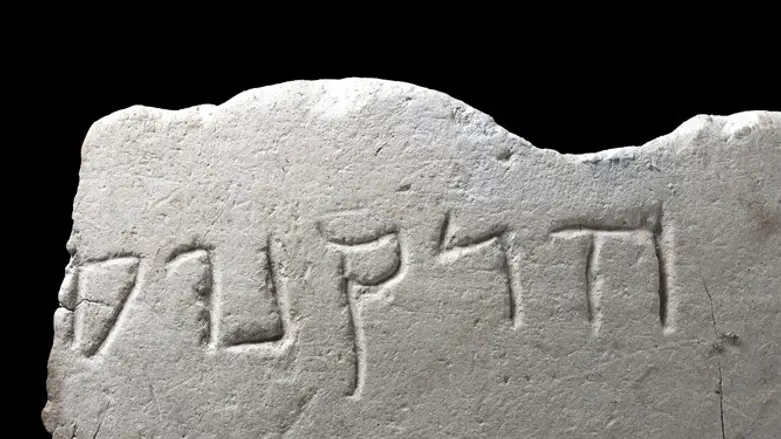
Who was the "Hyrcanus" whose name was engraved in Hebrew on a stone pot in Jerusalem 2100 years ago?
The finding of the stone shard, which was discovered in 2015 during an Antiquities Authority archaeological excavation in the Givati Brigade parking lot adjacent to the City of David, has now been publicized and is arousing speculation among scholars.
According to Dr. Doron Ben-Ami of the Antiquities Authority and Professor Esther Eshel of Bar Ilan University, "The pot which was discovered is one of the earliest examples of chalk vessels used in Jerusalem. These vessels were widely used by Jews, as they were considered vessels which did not receive ritual impurity."
Was Hyrcanus, whose name is engraved on the pot, a senior personage or was he a common citizen in the Hasmonean period? Scholars say it is hard to know.
"The name Hyrcanus was very common," said Dr. Ben-Ami and Prof. Eshel. "During this period many famous people had this name, for example Johanan Hyrcanus, the grandson of Mattityahu the Hasmonean who ruled Judea and Johanan Hyrkanus II, son of Alexander Yannai and Queen Shlomtzion, but it is impossible to establish if the pot belonged specifically to them."
The pot was discovered during an archaeological excavation under a mikveh (ritual bath) which is part of a number of purification facilities dating to the Hasmonean period.
The Givati Brigade parking lot is one of the largest excavation sites revealed in Jerusalem to date. Excavations in the site, which are sponsored by the City of David association, have revealed a large number of finds from different periods.
A year ago, an excavation revealed the remnants of the Hakra, a fortress constructed by the Seleucid king Antiochus IV (the protagonist of the Hanukkah story) in order to control the city and supervise the activities in the Temple. The fortress was later conquered by the Hasmoneans.
The stone pot was discovered a short distance away from the ruins of the Hakra.